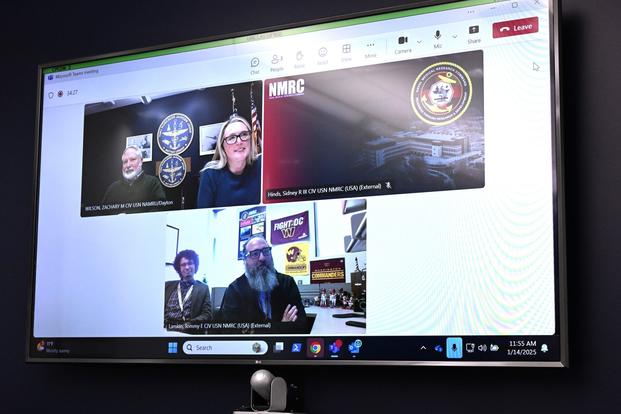As if the job search weren’t stressful enough, today’s employers will often invite multiple decision makers to job interviews. They may do this for efficiency (fewer meetings on the calendar), to get multiple perspectives on a candidates’ responses (we’re all hearing the same thing at the same time), to assess the candidate’s ability to satisfy multiple stakeholders, or for myriad other reasons.
For the job candidate, the idea of interviewing in front of many people at one time can feel overwhelming, daunting and highly unpleasant.
Then, when you add the virtual (video or audio) component to the job interview with multiple participants, you have the potential for chaos and stress.
Instead of panicking, use the opportunity for a panel interview to position yourself as a viable and desirable candidate.
Prepare Ahead of Your Virtual Panel Interview
In advance, when you notice or are told you’ll meet more than one person in an interview, get prepared.
1. Research each person who’ll participate. You can find their names in the meeting invite or if it’s been communicated to you in advance. Look at their LinkedIn profiles – this is not creepy; it’s expected. Review their background, experiences and roles at the company. This will help you understand the perspectives and goals in the interview.
2. Consider the viewpoint each panelist might bring. A senior leader, for instance, might want to hear about your career goals and leadership style, whereas a functional manager may ask about your attention to detail and ability to work in a team.
3. Prepare responses and case studies for all different kinds of inquiries. Panelists may throw questions at you that range from behavioral interview questions to technical and skill-based queries, follow-on questions, open-ended narrative questions and more. Any of the panelists might ask any of these, so advanced preparation is vital.
How to Act in Your Virtual Panel Interview
In the interview, refer to these tips to ensure you remain calm, clear and confident:
1. Relax. Yes, this is overwhelming and intimidating, but you can do it. Take a deep, low breath and exhale slowly before you join the meeting. When someone asks a question, seize the opportunity to repeat a deep, low breath (trying not to be obvious on camera) to re-center your emotions before you respond.
2. Smile. Smile when greeted, asked a question, and beginning your response. Friendliness never goes out of style.
3. Make good eye contact. This is tricky since you’re viewing a computer screen, and many faces are shown. Instead of watching and speaking to the monitor, look at your camera. It will feel a bit strange – the faces are on the monitor! – but you’ll be demonstrating positive eye contact by looking into the camera when responding. It’s fine to look at the face asking the question (on your monitor), but when you respond, look at the camera.
4. Pause before you respond. One of the habits people can fall into, in person or via video, is responding too quickly. In a panel interview on video, it’s important that the person asking gets the time needed to fully ask their question. If you jump in too quickly, you come across as interrupting.
5. Use their name. If the hiring manager says you can call him Bob, it’s fine to respond to his question with, “Thanks for that question, Bob …” People tend to like to hear their names said out loud. If you’re not sure about pronunciation, either ask, or avoid using their name for fear of pronouncing it wrong.
Most panel interviewers understand how overwhelming the process can feel and will offer some latitude to candidates who struggle. If you’re composed, professional and friendly, you’ll surely make a positive impression in an otherwise stressful situation.
Find the Right Veteran Job
Whether you want to polish your resume, find veteran job fairs in your area or connect with employers looking to hire veterans, Military.com can help. Subscribe to Military.com to have job postings, guides, advice and more delivered directly to your inbox.
Story Continues
Read the full article here


14 Comments
Researching panelists is a smart move. It shows initiative and helps you connect with them on a personal level.
I’ve found that a little background knowledge can really help steer the conversation in your favor.
Exactly. It’s all about making those genuine connections in a virtual format.
Panel interviews are tough enough, but adding the virtual component can be a real challenge. Tech issues only add to the stress.
True. I always test my setup ahead of time to avoid any last-minute hiccups.
A backup internet connection can be a lifesaver in these situations.
I wonder if hiring managers use panel interviews to see how candidates handle pressure. It’s like a real-world stress test.
That could be part of it. They might also be assessing team dynamics quickly.
I’ve had a few virtual panel interviews, and they can feel overwhelming. The key is to stay calm and focused.
Overwhelming is right, but if you’re prepared, it’s like any other interview.
Definitely. Breaking down your preparation into small steps can make it more manageable.
Virtual panel interviews are becoming the norm, and they can be intense. It’s important to research everyone beforehand to make a strong impression.
That’s a great tip. It also helps to practice speaking clearly and concisely for a virtual setting.
Absolutely. I usually prepare a brief note on each panelist to tailor my responses effectively.